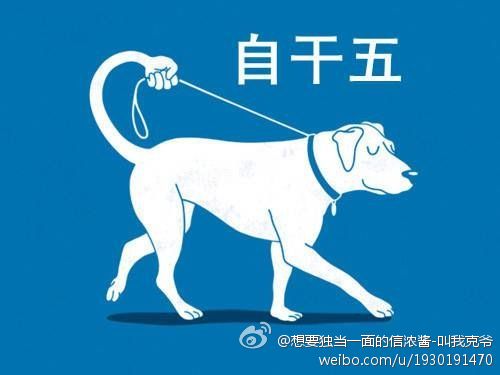The Word of the Week comes from the Grass-Mud Horse Lexicon, a glossary of terms created by Chinese netizens and encountered in online political discussions. These are the words of China’s online “resistance discourse,” used to mock and subvert the official language around censorship and political correctness.
自干五 (zìgānwǔ): volunteer fifty center
Internet user who defends the Chinese government of their own free will, as opposed to a paid fifty center; abbreviation of “fifty center who brings their own provisions” (自带干粮的五毛 zì dài gānliang de wǔmáo).
Volunteer fifty centers emerged as a reaction to criticism of the government and liberal intellectual commentary. Undercover commentators who write in favor of government policies are often called “fifty centers,” after the fifty cents they allegedly earn for each post. Volunteer fifty centers are instead self-identified and claim their pro-government opinions as their own.
Over time, the line between fifty centers and volunteer fifty centers has blurred. Any pro-government comment may be disparagingly labelled as the work of either the “Fifty Cent Party” or the volunteer fifty centers. Meanwhile, the government encourages the unremunerated spread of “positive energy” online through programs such as the Communist Youth League’s Youth Internet Civilization Volunteer Campaign.
Example:
Jiangyanhang (@姜雁航): Some people say volunteer fifty centers are brain damaged, but I think they’re the highest form of the fifty cent species. (March 29, 2015)
有人说自干五是脑残,可我觉得自干五是五毛类生物的最高境界。 [Chinese]
See also Fifty Cent Party.
 Want to learn more subversive netizen slang? Check out Decoding the Chinese Internet: A Glossary of Political Slang. Available for $2.99 in the Kindle, Google Play, and iTunes stores. All proceeds from the sale of this eBook support China Digital Times.
Want to learn more subversive netizen slang? Check out Decoding the Chinese Internet: A Glossary of Political Slang. Available for $2.99 in the Kindle, Google Play, and iTunes stores. All proceeds from the sale of this eBook support China Digital Times.









